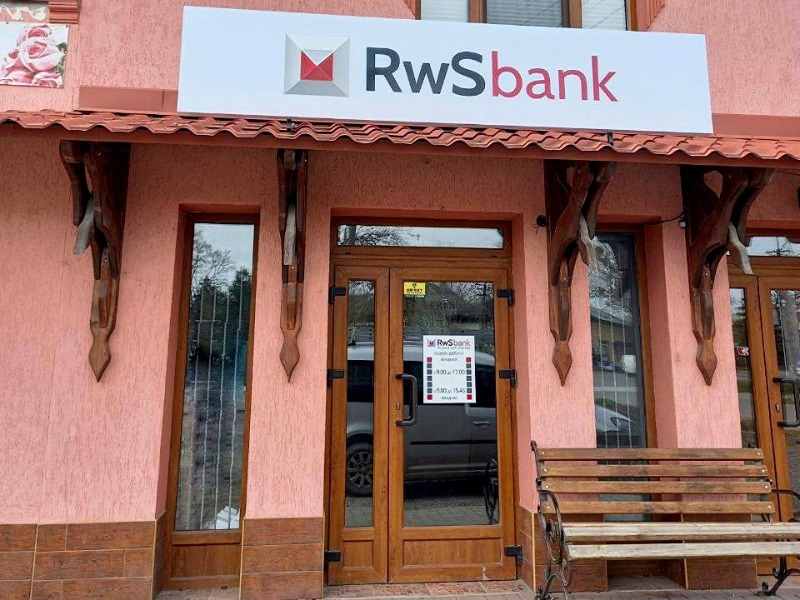Copyright kyivpost

The National Bank of Ukraine (NBU) on Nov. 4 declared RwS Bank insolvent, citing its continued risky activity, failure to comply with prudential regulations, and inability to restore its financial stability despite being classified as problematic since July. The bank ignored the NBU’s order to submit a revised financial recovery plan and continued to violate capital adequacy ratios. Despite Russia’s full-scale invasion, Ukraine’s central bank remains assertive in detecting money-laundering risks and potential embezzlement in the banking sector. In its press release on the matter, NBU said the bank’s operations posed a threat to the interests of depositors and creditors. RwS Bank accounted for only 0.04% of the assets of solvent Ukrainian banks as of Oct. 1, meaning its exit from the market will not affect the stability of the banking sector, the NBU wrote. The Ukrainian Deposit Guarantee Fund (DGF) will reimburse all depositors in full, including accrued interest, except in cases defined by law, NBU wrote. The total guaranteed payout to clients is estimated at Hr.456 million ($11 million) as of Oct. 21. According to a statement published on RwS’s website, a temporary administration was introduced starting Nov. 5 and will operate until Dec. 4. The temporary administration should analyze the overall situation with the bank’s funds, deposits, assets, and statements to summarize whether the bank’s leftover assets can be used to reimburse the depositors. The Fund for the Guarantee of Deposits of Individuals (FGD) appointed Denys Novikov, head of the Early Response Department at the FGD’s banking supervision unit, as temporary administrator for a one-month term. What was wrong with RwS bank RwS Bank was previously recognized as problematic on July 29. The NBU cited multiple breaches, including: – inadequate internal control and risk management systems – repeated violations of capital adequacy ratios for more than 30 consecutive days – submission of inaccurate financial data to conceal its actual condition Ukraine’s central bank previously fined RwS Bank in December 2024, imposing a penalty of Hr.135.15 million ($3.29 million) for major violations of anti-money laundering rules, citing poor internal controls, weak risk management, and failure to properly verify clients. The bank also previously received a Hr.50,000 ($1,200) penalty for breaching currency regulations and a written warning for failing to detect and document transactions subject to financial monitoring. Despite these warnings, the bank continued risky operations and failed to implement measures to restore solvency, Ukraine’s central bank wrote. The NBU said that the actions of the management and majority shareholder did not prevent the bank’s deterioration. RwC seems to be close to lawmakers from Petro Poroshenko’s political party RwS Bank’s key shareholder, as of Jan. 1, was Ukrainian citizen Oleksandr Stetsiuk, who owned 99% of shares. Stetsiuk became RwS Bank’s direct owner in 2018, after acquiring the stake previously held by Ukrainian Business Group, which he founded. Ukrainian Business Group was previously a direct shareholder of the bank in 2015, and the ownership was transferred to Stetsiuk. Before that, the bank’s ownership was linked to former lawmaker Ruslan Demchak, who served as deputy chair of parliament’s finance and banking committee during the 8th convocation and a lawmaker of Petro Poroshenko’s political party. His daughter, Kateryna Demchak, still held 1% of shares, according to NBU information on ownership. Investigations by the Ukrainian investigative project “Nashi Hroshi,” founded by journalist Denys Bihus, revealed in 2015 that firms connected to Demchak’s earlier financial institutions were allegedly used as “conversion centers” — shell networks that moved millions of hryvnias in state funds through fictitious accounts. A Kyiv Post source from ex-employees of Pryamiy TV channel, which is also owned by Petro Poroshenko, also said that the bank cards from Poroshenko’s channel employees were issued in RwS bank. Poroshenko owns another bank, “Mizhnarodnyy Investytsiyniy Bank” (“International Investment Bank” from Ukrainian), according to the bank’s ownership structure cited on the NBU’s website. The bank remains solvent at the moment of publication.



